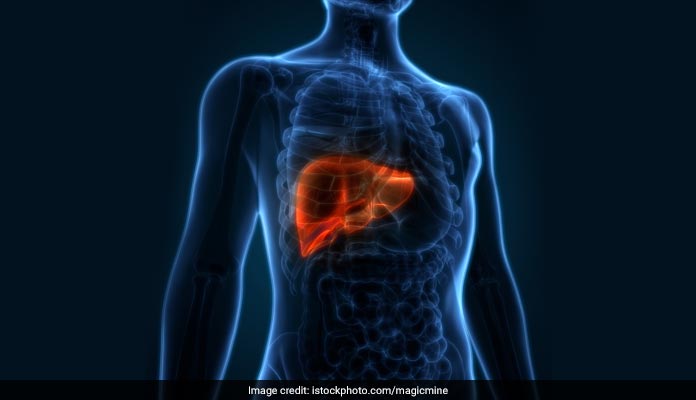When the liver is damaged to an extent where there is no scope of repair, this stage is known as liver failure. This is when a liver transplant is required.

Liver transplant is a time-taking procedure
HIGHLIGHTS
- Over 500 functions of the human body are carried out by your liver
- A liver transplant is not meant for everyone
- Liver transplant is a time-taking procedure
Liver is indeed the most vital organs of the human digestive system. Over 500 functions of the human body are carried out by your liver. Any disruptions in the normal functioning of your liver can bring about a great deal of disturbance in your entire digestive system. Liver disorders can be anything; from mild to severe. Now treating them with medication is one option but when none of it works well, last resort is to go through a liver transplant. In most cases, complete failures demand a liver transplant surgery. When the liver is damaged to an extent where there is no scope of repair, this stage is known as liver failure. This condition can be life-threatening and it requires immediate medical attention. Liver failure, however, is not something which affects you overnight (except for acute liver failure). It occurs slowly, over a period of years.
 Liver transplant: Liver transplant is a time-taking procedure
Liver transplant: Liver transplant is a time-taking procedureWhat is liver transplantation?
A liver transplantation is a surgical procedure which involves the removal of a diseased liver from the body and its replacement with a healthy one. This procedure is required when the liver is damaged to an extent where it cannot be repaired. Good quality medical care and support can delay the need for a transplant but it cannot eliminate the need altogether. But besides all this, there are some aspects of this surgery which everyone should be aware of.
Here's a list of 7 things about liver transplants which you must know. Take a look.
1. Living donors
Liver required for the transplant surgery comes from two types of donors, namely the living donor and the cadaveric donor. In the living donor transplant, a segment of the liver of a healthy person is transplanted to the patient. This is effective because the liver is that miraculous organ which regenerates itself inside the human body. The remaining segment can develop itself inside the body within a few weeks.
Also read: Healthy Liver; 7 Simple Tips You Must Follow
2. Cadaveric donor
The cadaveric donor, on the other hand, is a person who suffered brain damage due to an incident and is declared brain dead. Their livers are checked before transplantation, for blood type and the right size. The liver is checked properly for any diseases or infections before considering the transplant.
3. The liver transplant is not possible for everyone
A liver transplant is not meant for everyone. In some cases, patients suffering from some health conditions are not fit for the operation. These health conditions include:
- Cancer in some part of the body
- Severe heart, lung or nerve disease
- Alcohol and drug abuse
- Severe infection at the moment
- Failure to follow doctor's instructions
 Liver transplant: Liver transplant is not meant for everyone
Liver transplant: Liver transplant is not meant for everyone4. Liver transplant from a living donor
If the liver is coming from a living donor, both procedures are conducted at one time. The liver segment is harvested from the donor and then transplanted into the recipient.
5. Liver transplant from a cadaveric donor
When the liver is taken from a brain dead person, it goes through some medical procedures where it is checked for blood type and infections. If it is fit in every aspect, it is then transplanted into the patient.
Also read: 7 Early Signs And Symptoms Of Liver Cancer
6. Time taken by the procedure
Liver transplant is a time-taking procedure. It can take 6 to 14 hours. One surgeon harvests the diseased liver and the other prepares the new one for transplant. The new liver is then placed in the patient. The surgeon then reconnects the blood vessels and bile duct properly so that the blood can start flowing into the liver.
7. Recovery
Once the procedure is complete, the patient stays in the hospital for two to three weeks till the new liver starts functioning properly. Medicines are given to the recipient to prevent risk of rejections and infections in the liver. Once the liver adapts to some medications and is free from infections, then the patient is discharged from the hospital.
Also read: 9 Signs Your Liver Needs A Detox
Disclaimer: This content including advice provides generic information only. It is in no way a substitute for qualified medical opinion. Always consult a specialist or your own doctor for more information. NDTV does not claim responsibility for this information.
DoctorNDTV is the one stop site for all your health needs providing the most credible health information, health news and tips with expert advice on healthy living, diet plans, informative videos etc. You can get the most relevant and accurate info you need about health problems like diabetes, cancer, pregnancy, HIV and AIDS, weight loss and many other lifestyle diseases. We have a panel of over 350 experts who help us develop content by giving their valuable inputs and bringing to us the latest in the world of healthcare.














